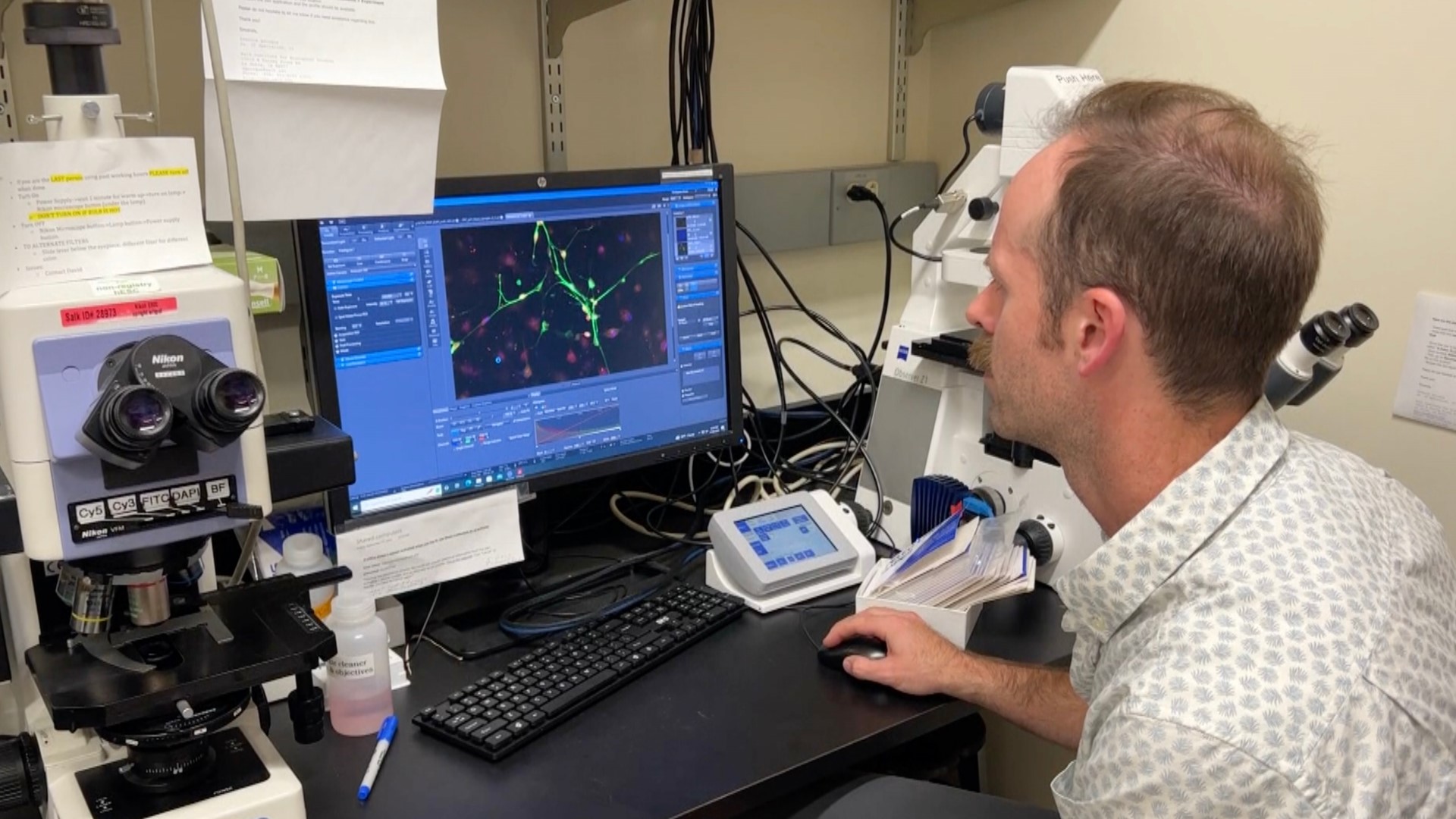SAN DIEGO — Joseph Herdy is a UCSD graduate working at the Gage Laboratory of Genetics at the Salk Institute in La Jolla. Herdy and other Salk scientists took skin cells from people with Alzheimer's’ disease and converted them into brain cells called neurons.
"Now, we have neurons from Alzheimer's patients and healthy people, and we can compare populations," said Herdy.
They found that people with Alzheimer's have neurons that show deterioration and undergo a late-life stress process called senescence.
"This is an interesting finding because people don't typically think of neurons as pro-inflammatory, but the ones that transition to the senescence state kind of have a gain and function where they became inflammatory later in life," said Herdy.
He also says there is some overlap between cancer and Alzheimer's neurons.
"And how the cells make their energy is the shift in cancer cells too. There is an interesting overlap in cancer phenotypes and changes in Alzheimer's neurons. And we think that might be related to the senescence activation we see because senescence is a strategy the body uses from cancer from forming," said Herdy.
Herdy and researchers are discovering that targeting the deteriorating neurons could effectively treat or even prevent Alzheimer's disease.
"We are exploring new avenues through different molecular features of the neurons of people who have Alzheimer's disease. Although a lot of work needs to be done to bring this into a clinical setting, this is a potential new therapeutic avenue for treating Alzheimer's disease," said Herdy.
WATCH RELATED: Alzheimer's Disease: News 8's Marcella Lee and her mom begin the journey (2019)

